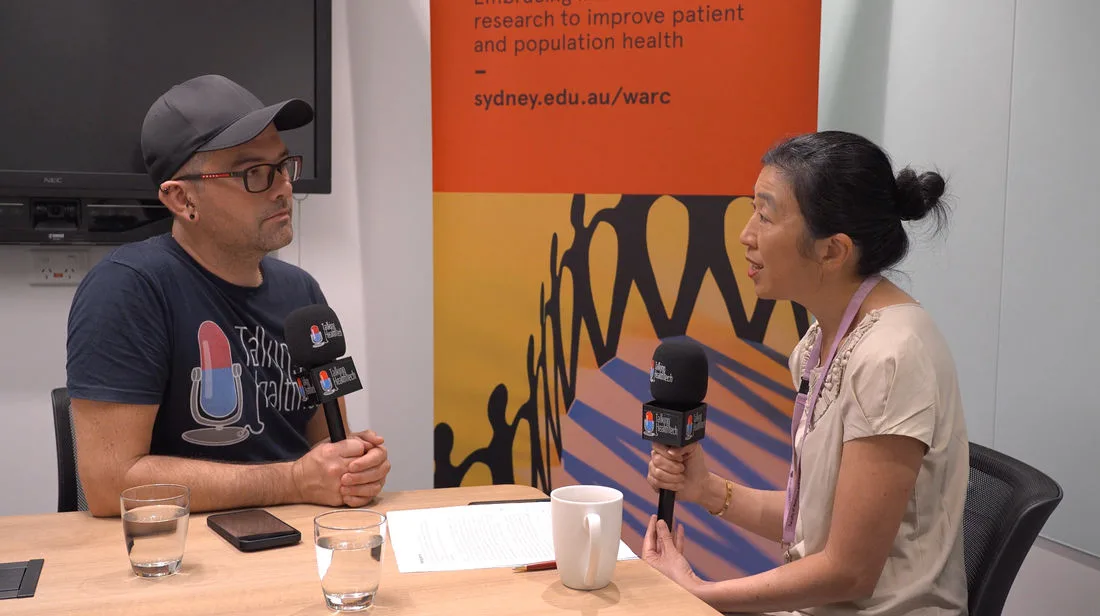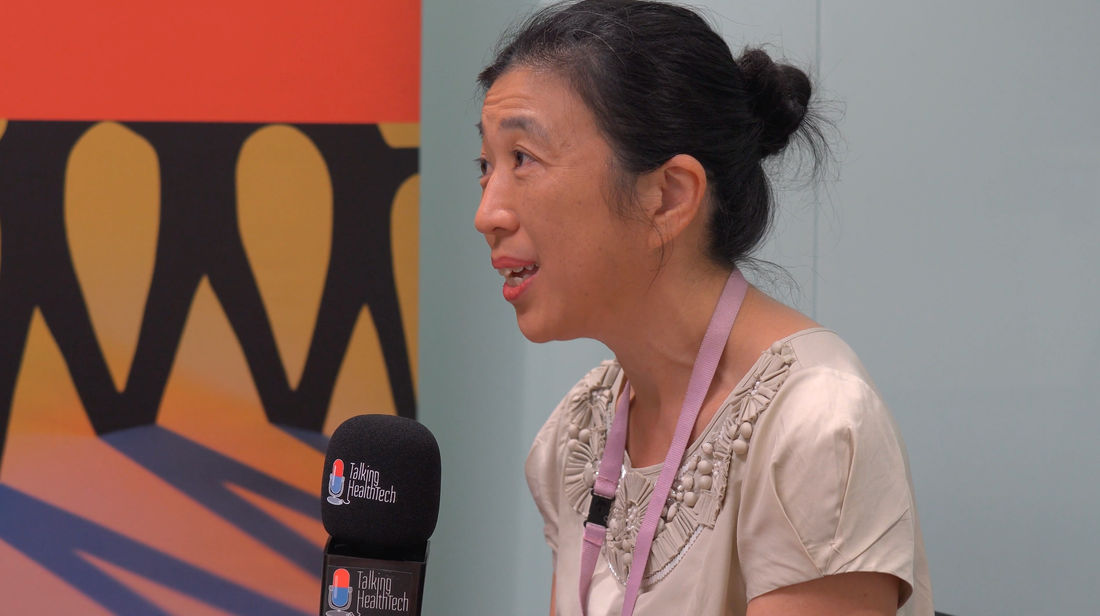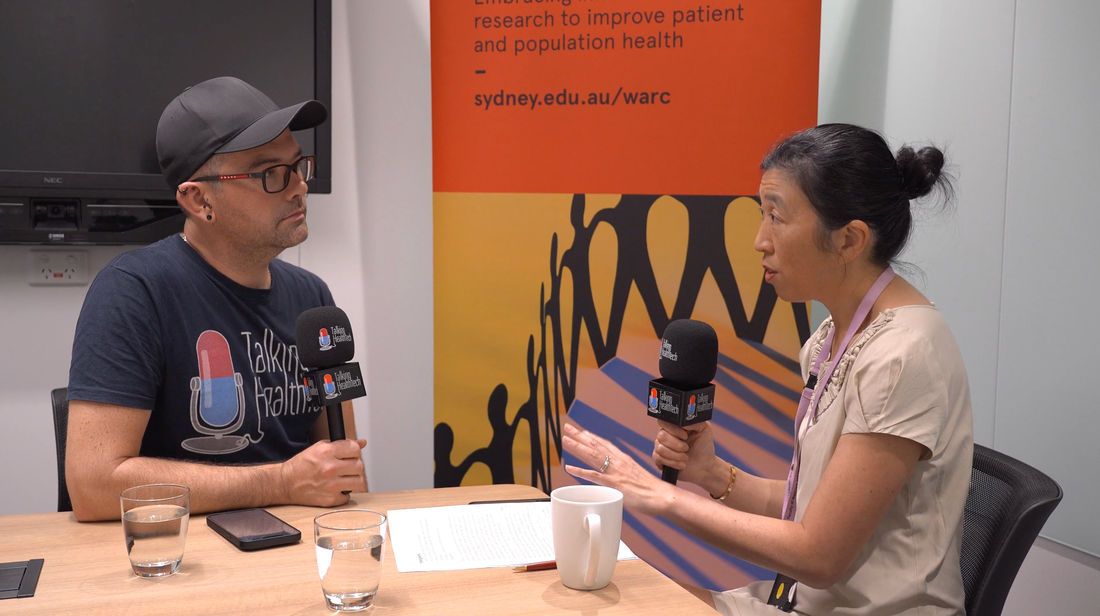Talking HealthTech: 410 – Managing heart health risk factors with digital health. Professor Clara Chow, Westmead Applied Research Centre (WARC)
Source: talkinghealthtech.com

Provided by:
Talking HealthTech
Published on:
13 February 2024
Healthcare and technology are becoming increasingly intertwined, transforming the way we approach patient care. In this episode of Talking Health Tech, Peter Birch sat down with Professor Clara Chow, a cardiologist and academic director of the Westmead Applied Research Centre (WARC) in Western Sydney. The discussion shed light on the innovative approaches being used to address chronic diseases, the importance of evidence-based solutions, and the development of digital clinical trials to support patients.
Understanding the Westmead Applied Research Centre (WARC)
WARC’s mission is to address the burden of chronic disease, particularly focusing on cardiovascular diseases, diabetes, and general health. This goal is pursued through the integration of simple, yet innovative technology to enhance healthcare delivery and empower patients in managing their chronic health conditions.
Professor Chow emphasised, “We want to be convinced that the evidence actually shows us it improves health outcomes and patient experience as well as does that reasonably cost-effectively.” This approach reflects a commitment to evidence-based solutions and patient-centric care, setting a high standard for the impact of technology in healthcare.
Advancing Evidence-Based Solutions in Healthcare
Professor Chow stressed the importance of evidence-based solutions, particularly in the digital health space. WARC has conducted multiple clinical trials to evaluate the effectiveness of different interventions, with a particular focus on supporting patients with chronic health conditions. The outcomes of these trials have been pivotal in shaping the Centre’s approach to utilising technology in healthcare and shaping their emerging products.
This proactive engagement in research reflects WARC’s dedication to rigorously testing and validating the impact of their digital interventions, ensuring that they contribute positively to patient outcomes and experiences.
The Impact of Digital Clinical Trials: Text Message-Based Intervention’s Success
Professor Chow shared an example of a text message-based education support program in partnership with the Heart Foundation, developed for patients recovering from heart attacks. The results of the program revealed a significant difference in patient outcomes, as those who received the text message-based program exhibited lower cholesterol, blood pressure, and a higher likelihood of quitting smoking and adopting a healthier lifestyle compared to those who received usual care.
This success story highlights the transformative potential of simple yet personalised digital interventions in improving patient health.
Unlocking the Potential of Wearable Data
The evolution of digital interventions has also seen WARC integrate wearable data into their programs to provide personalised support for patients with chronic conditions. By leveraging wearable technology and advanced algorithms through their app MICAridac, WARC aims to deliver more tailored guidance, incorporating data from activity trackers, blood pressure monitors, and other devices to customise support, provide advice, and encourage proactive health management. You can find out more about their trial here.
Equity and Cultural Considerations in Healthcare
As a cornerstone of their approach, WARC focuses on developing solutions that cater to the diverse population of Western Sydney. Recognising the cultural and economic diversity in the community, WARC ensures that their programs are accessible to individuals with varying levels of health literacy, cultural backgrounds, and preferred languages. This commitment to equity in healthcare is demonstrated through the customisation of programs and the provision of information tailored to an individual’s cultural and food backgrounds.
This inclusive approach not only addresses diverse patient needs but also sets a standard for healthcare innovation that considers the unique requirements of different communities.
Driving Impact Through DigiCuris
The culmination of WARC’s research efforts, insights from clinical trials, and dedication to evidence-based solutions, has led to the development of DigiCuris, a research-driven platform aiming to deliver personalised, customised healthcare programs at scale, drawing from a wealth of insights and learnings accumulated over years of research and innovation, covering over 160K patients across 15 different areas of disease within hospitals and community.
“DigiCuris brings in learnings from all of our way back to our text message-based, sort of simple and scalable kind of ethos,” Chow explained. DigiCuris provides personalised evidence-based health support, education, monitoring and assistance to those patients that need it most. Using innovative Ai and machine learning technology we are able to support patients from start to finish improving their patient journey through healthcare system.
Collaborating for Impact
Looking ahead, WARC seeks to establish partnerships, particularly with industry-level partners aligned with their vision of delivering evidence-based, high-quality healthcare at scale. This collaborative approach aims to expand the impact of healthcare technology, integrating innovative solutions into broader healthcare systems while ensuring interoperability with existing platforms and frameworks.

